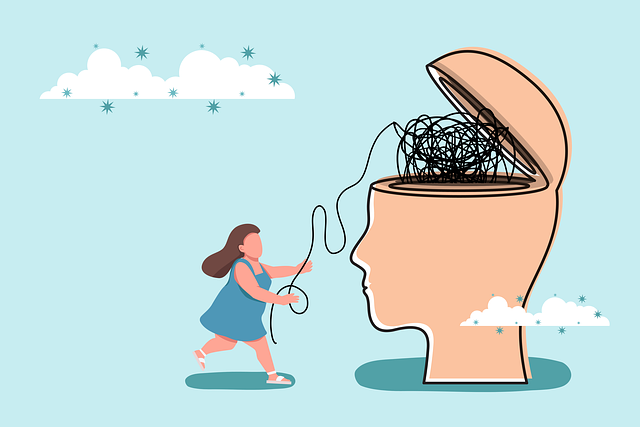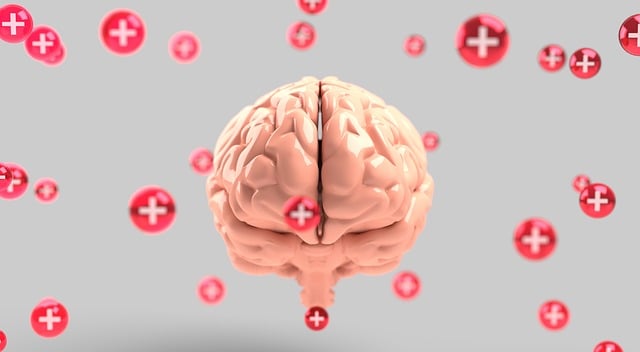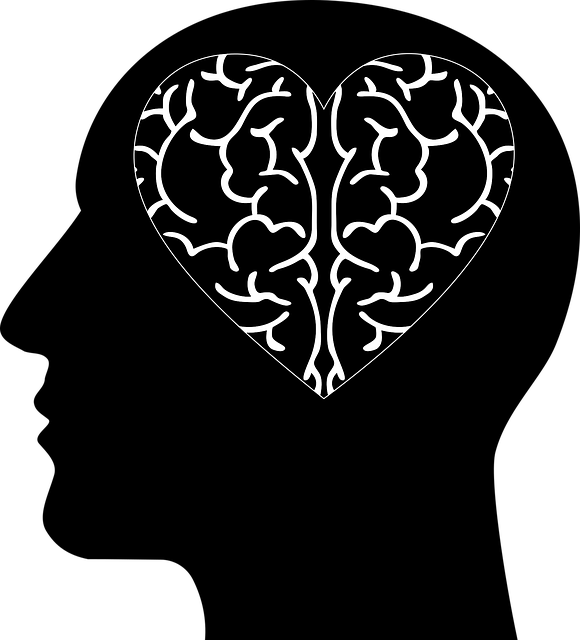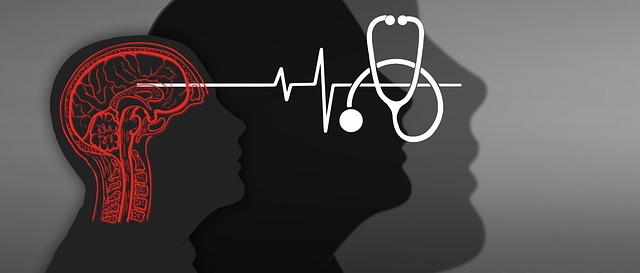Diagnosing mental illness accurately is challenging due to diverse symptoms, subjective assessments, and cultural differences. Integrating evidence-based practices like Aurora Self-Esteem Therapy alongside traditional methods improves diagnosis accuracy. This therapy focuses on building self-esteem, enhancing self-awareness, and improving diagnostic insights. Cultural competency training for healthcare providers further ensures precise diagnoses. Digital tools, such as online platforms and apps, offer interactive exercises and personalized feedback, expanding access to resources. Training and education are crucial; therapists at Aurora Self-Esteem Therapy receive comprehensive learning to improve diagnostic capabilities and create supportive therapeutic environments.
Mental illness diagnosis accuracy is a critical aspect of patient care, yet it remains a challenging domain. This article explores efforts to improve diagnostic accuracy by delving into specific strategies and tools. We examine the complexities of mental health assessments, highlighting gaps in current practices. Key sections include an analysis of Aurora Self-Esteem Therapy’s role in enhancing diagnosis reliability, evidence-based practices, technological interventions, and the importance of professional training. By integrating these approaches, healthcare providers can strive for more accurate and effective mental illness diagnoses.
- Understanding Mental Illness Diagnoses: Challenges and Gaps
- The Role of Aurora Self-Esteem Therapy in Enhancing Accuracy
- Evidence-Based Practices for Improving Diagnostic Reliability
- Integrating Technology: Digital Tools for Diagnosis Support
- Training and Education: Empowering Professionals for Accurate Assessments
Understanding Mental Illness Diagnoses: Challenges and Gaps

Diagnosing mental illness accurately is a complex process, often fraught with challenges that can lead to misdiagnosis or delayed treatment. One significant hurdle is the vast spectrum of symptoms associated with various mental health conditions, which can overlap and vary widely from person to person. For instance, depression might manifest as persistent sadness in some individuals but increased irritability in others. This complexity necessitates a thorough understanding of each patient’s unique experience.
Additionally, the subjective nature of many mental health assessments poses challenges. Self-reporting by patients is crucial, but it may be influenced by factors like social desirability or a lack of awareness about their symptoms. Professional evaluators must also consider cultural differences and potential biases in diagnostic tools to ensure accurate assessments, especially when dealing with diverse patient populations. Incorporating evidence-based practices, such as Aurora Self-Esteem Therapy, alongside traditional methods can aid in improving diagnosis accuracy.
The Role of Aurora Self-Esteem Therapy in Enhancing Accuracy

Aurora Self-Esteem Therapy plays a pivotal role in enhancing the accuracy of mental illness diagnoses. By focusing on building self-esteem and confidence, this therapeutic approach helps individuals better understand their emotions and behaviors, enabling them to provide more detailed insights during evaluations. Improved self-awareness leads to more precise assessments, as healthcare providers can now rely on accurate patient reporting and observation.
Moreover, Aurora Self-Esteem Therapy integrates social skills training and emotional intelligence development, which are crucial components for individuals navigating mental health challenges. This holistic approach ensures that patients not only gain a deeper understanding of their conditions but also learn effective coping strategies to manage symptoms. Additionally, enhancing healthcare provider cultural competency through specialized training further complements Aurora Self-Esteem Therapy, fostering an environment where diverse patient experiences are recognized and respected, thereby improving overall diagnostic accuracy.
Evidence-Based Practices for Improving Diagnostic Reliability

Mental health professionals are increasingly recognizing the importance of evidence-based practices to enhance diagnostic reliability. These methods focus on utilizing well-researched and validated techniques to ensure accurate assessments, which is crucial for effective treatment planning. One such practice gaining traction is Aurora Self-Esteem Therapy, a therapeutic approach that empowers individuals by addressing their self-perception and building resilience. By fostering positive thinking and anxiety relief, this therapy not only improves diagnostic clarity but also equips clients with coping mechanisms to navigate life’s challenges.
Additionally, trauma support services play a pivotal role in enhancing diagnosis accuracy. Many mental health conditions have roots in traumatic experiences, and providing specialized care can offer deeper insights during the assessment process. Integrating evidence-based practices alongside tailored interventions ensures that professionals capture the full spectrum of an individual’s psychological state, leading to more precise diagnoses and personalized treatment strategies.
Integrating Technology: Digital Tools for Diagnosis Support

In today’s digital era, integrating technology has emerged as a powerful tool to enhance mental health diagnosis accuracy. Online platforms and mobile applications are revolutionizing the way we approach psychological assessments. For instance, Aurora Self-Esteem Therapy offers a comprehensive digital toolkit that includes interactive exercises, self-assessment questionnaires, and personalized feedback mechanisms. These digital tools not only facilitate access to mental health resources but also provide a more engaging and user-friendly experience for individuals seeking support.
Furthermore, compassion cultivation practices and trauma support services can greatly benefit from this technological advancement. Digital platforms can offer anonymous and safe spaces for users to reflect on their experiences, practice mindfulness, and develop healthy coping mechanisms. By incorporating these innovative tools, mental health professionals can improve diagnosis accuracy, cater to a wider audience, and enhance the overall effectiveness of treatment strategies, ensuring better outcomes for those in need.
Training and Education: Empowering Professionals for Accurate Assessments

In the pursuit of enhancing mental illness diagnosis accuracy, training and education play a pivotal role. Professionals across various sectors, including healthcare and psychology, require comprehensive training to stay abreast of latest research, therapeutic techniques, and symptom recognition. This empowers them to conduct thorough assessments, consider multifaceted factors influencing mental health, and make informed diagnoses. By investing in continuous learning, professionals can better navigate the complex landscape of mental illnesses, ensuring more precise and timely interventions.
At Aurora Self-Esteem Therapy, we recognize the importance of empowering therapists through education that incorporates self-care practices, conflict resolution techniques, and emotional intelligence. These tools not only bolster the therapist’s ability to assess and diagnose but also foster a supportive therapeutic environment, leading to more effective treatment outcomes. Through such initiatives, we aim to contribute to the global effort towards improving mental illness diagnosis accuracy.
Mental illness diagnosis accuracy is a multifaceted challenge that requires a combination of improved understanding, advanced tools, and enhanced training. By integrating evidence-based practices such as Aurora Self-Esteem Therapy and leveraging digital tools, professionals can navigate the complexities of mental health assessments more effectively. Continuous education and collaboration among experts are crucial to ensuring reliable diagnoses and improving patient outcomes.











